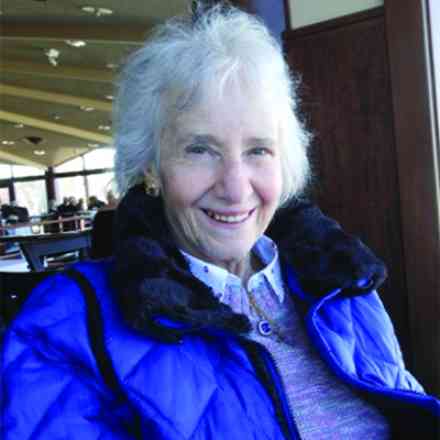HOW DID THOSE CHILDREN GET in that tree? Girl? Boy? One of them me.
Those branches do not ladder. Hands reaching, translucent skulls, veins showing. Above, beyond the cypress hanging in bayous.
On sky, they swirl like Pavel Tchelitchew’s, writhing in flame spewing cinders in the museum.
The guard’s breath quickens as I hold hands with my woman.
A keloid scar on her body
From running thru autumn leaves
life a wheel now, no ladder
Would it have been worse if her hair had caught fire?
Making her look like a figure in the tarot deck?
She, a girl, twelve, on the cusp
Balancing, a teeter-totter that made her question God
out of the Ailanthus came petals, scarring her
just where she had begun budding,
I had just kissed a girl in the school hall in a way she never had.
* * *
I WAKE TO IT; Radar pings of sky object.
Woke to tragic events one cannot move on from.
Do I live in our own isolated religious community?
Words for fuel?
Are we meeting in a hayloft
Imagining it a fortress?
What will buttress us
When a secret from childhood gets out?
Filmic. Exsultate.
Is my space devoid of color? Grey-screen washing off a tint?
Or does the agony of withholding
Force it into color:
the bud thru cold soil,
the child into the ocean freezing beyond short history’s bearing?
* * *
THE WORLD around me takes shape, bits & bobs:
As ethereal fields, wheat, paler straw, heighten
Into a beyond-blond frame.
Transparency
Becomes key: pretty as an altar boy, you buy flowers, three kinds to bring home to me, bedbound.
Spring brings us the opacity of a weight between the ribs:
A loss we cannot set in our brown glazed vase in the hall.
No matter how tall
Water cannot fill it
So, water loses height:
becomes a nubbin, a button,
extraordinary burden for so tiny a thing: mighty
While this familiar world with the pain of walking
after a life-altering accident:
strikes again an inalterable, semi-transparent weight.
* * *
IN A WAVE of time,
A child with a bowl haircut
Not a strand of a braid
Much pain breaks my body,
Wrecks the spirit.
The spirit of spitfire in it.
Bathed in natural light I’d spin
This opaque land on which I stand
Would transform
like Water Street’s windowed buildings.
A knob, walnut
To turn like a valve in A Body steeled to pain.
* * *
I START MY DAY with geometry.
Later
From my room you hear an old film can
converted into pill holder
pop open
Daffodils open
Unfastening color.
A replaced circuit breather illumines the john
A loo out of England,
Richard Stoltzman’s lullaby plays
A seed pod bursts open
A photo fuzzy as a bubble
As I come out of my caul, trouble.
No waters; brave nigh / flight as you are
Amelia Earhart flying over brute rubble.
* * *
A FIRE of flowers
Burns beside my bed
Into blue ether
This, to me, is ‘living’
hodie, this day.
I want to go to God.
Not bed.
Buy a cluster of three-color flowers.
Beggars
Lobe.
If not love,
What…at least hopes
in the fringes of a Romanian shawl
when I was a first-generation,
silk-smooth kid.
For honor, I bid.
* * *
AFTER POLIO
a she that looked like an old lady’s
Victorian boot
Laced. Glossy as glass.
Toward sunset one always feels loss.
Scotch lace took place in corners.
Lady bugs, coroners took mites away.
I folded like origami.
knotted.
The. Rope
Of hope lifted me toward rafters.
* * *
ESTONIAN WINTER CLARITY
Glass quail
The music conservatory was a cloister.
I think of other extras;
The secret behind Japan’s wintry strawberries
The Grand Canyon of love.
The early berries depend upon kerosene-burning glasshouses.
A little carbon footprint
Like the quail, chain-mailed
In light of winter Tallinn-fraigile.
if you take it in your hands it will be gone,
the music from a cloister before the globe began.
Editor’s note: “Children in Tree” is an original poem first published in this issue of storySouth. Strongin shared that the poem is about inner and outer vision. Strongin also mentioned that what’s described in stanza two is a true incident from her life. As Strongin said, “A child I knew in modern dance class had scars on her calves from running thru autumn leaves she thought were no longer burning.” Finally, if you haven’t listened to “Lullaby” by the clarinetist Richard Stoltzman, do so now. It’s such a beautiful song.

